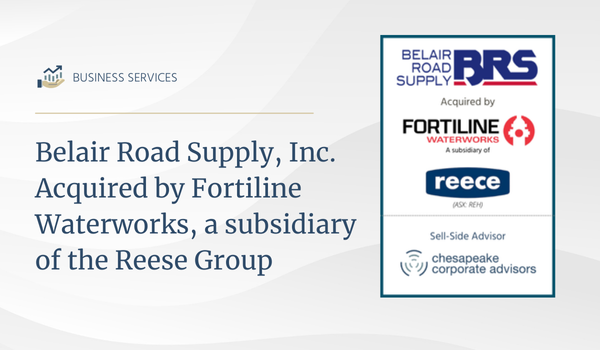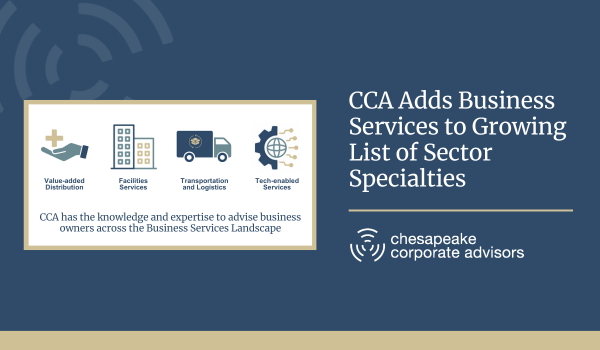If you are a business owner preparing the company you have worked hard to build for a liquidity event, selling a majority or minority share to a private equity (PE) group is one option. When you sell to a PE firm, one of two scenarios is likely: 1) Your business becomes a platform company, which the firm builds upon by adding other companies it acquires, or 2) Your business is bolted onto an already existing platform within the PE group’s portfolio.
In either case, after the deal closes, one of the first orders of business is to integrate your business into the PE portfolio. Since you will likely have a vested interest in the success of the new entity, to ensure the “second bite of the apple” is lucrative, you will want the integration to be successful. The following strategies will help ensure an effective integration after the sale of your company to a PE group.
1. Adapt Your Leadership Approach and Role
When you were the owner of a privately held business, you probably took a top-down approach to leading your staff. Now that your business is part of a PE group, you may find yourself leading your peers within the group’s portfolio, without having the positional power to lead—a situation that is referred to as leading without authority.
To effectively lead without authority requires a strategic approach. For example, you will need to determine how others in the new organization like to share information and what forms of communication they prefer. Are they accustomed to sharing performance updates monthly in a PowerPoint, or do they send more informal updates by email daily or weekly? Effectively communicating up and across the organization requires intentionality on how, what, why and when you communicate.
Besides adjusting to a new organizational chart, you will need to take on a different leadership role in this new environment. Integrating a newly acquired business into a PE portfolio is a major transformation, requiring professionals who can align teams to a common vision, establish a strategic direction, manage diverse stakeholders, and guide employees to achieve the company’s goals, even if some employees are skeptical or uncertain. The ability to listen, adapt, and serve as a motivator are all important skillsets during a post-merger integration.
2. Achieve Synergies and Remove Pain Points
A PE group will be laser focused on achieving synergies with the company it acquired and removing operational pain points. This approach, known as “securing the base,” is designed to address any flaws the PE group identified during due diligence and ensure the company is well-positioned to achieve aggressive growth.
Working with your executive team colleagues, you will need to determine how and when to operationally integrate each functional area of the organization, including human resources, accounting and finance, information technology, sales, business development, and marketing. Invariably, this effort involves determining how to integrate their respective technology platforms. The PE group might adopt a single technology platform for each function or take a hybrid approach—leaving multiple platforms in place for some functions while moving others onto a single solution. Senior management will need to decide the level of integration needed, prioritize the most critical functions, determine which technology platform(s) to use, and develop a detailed integration plan.
After experiencing the initial shock of being acquired, employees may find the idea of integrating functions unsettling since it upsets their established ways of doing business. If you are involved in planning and implementing the integration, strive to be honest, open, and clear in your communication, and quick in your decision making. Otherwise, it will be too easy for top talent to exit.
3. Clarify Governance and Decision Making
After you sell your business, you may find yourself reporting to a boss or being held accountable to an external board for the first time in your life. You also may find it challenging to transition from running a business autonomously to working in an organization where decision-making and governance are more highly structured and potentially decentralized.
Success post-merger requires clarity on how decisions will be made within the new organizational structure and your role in the process. You and any senior leaders left from the original business will need to function as part of an executive team within the context of the PE group, which may require putting ego aside and adopting a new way of working.
4. Address Staffing, Transition, and Retention Issues
Given the realities of the Great Resignation, the sale of your business could be just the catalyst some employees need to move on. Ideally, you would have required key staff members to sign non-compete and confidentiality agreements and incentivized them with some form of equity compensation before embarking on the process of selling your business, to help secure them.
Communicating a compelling shared vision also can go a long way toward retaining key employees. If you can tell an exciting story about how they will contribute to the new organization’s success, many will be energized to be part of a company where they can make a bigger impact.
5. Enhance Your Financial Reports and Statements
At its core, a PE acquisition is a financial deal. PE groups expect to see aggressive growth and strong earnings, so they will want more data-driven insights on the business than you might have gathered as the sole owner. Most privately held companies do not track and report on their performance as diligently or frequently as a PE group will now expect.
To meet your investors’ expectations, it is best to:
- Agree on key performance indicators (KPIs) you will report on
- Understand the report content, rhythm, timing, quality, and details the firm expects from each functional area
- Accept that you may need to report on certain financials more frequently (for example, a PE group often expects to see particular statements monthly, but you may have been generating them only annually to satisfy a bank covenant)
- Be prepared to go beyond the numbers, since PE groups will want to understand why the business performed as it did and what steps you are taking to adjust
- Expect that you will need to close your books monthly, on time, so your investors can keep tabs on the business’s performance more frequently
- Focus your team on developing professional, accurate financial statements that are defensible, especially to a board of directors that is likely to pose tough questions
6. Don’t Underestimate the Importance of Culture
PE groups are made up of financial experts who know how to fuel growth and generate a high return on investment—but they don’t always consider the cultural ramifications of business decisions. Yet, most people want to work in a positive environment that not only allows them to do fulfilling work, but also demonstrates care and concern for them personally. The backlash that occurred after Better.com fired 900 employees over Zoom is a prime example of an organization’s failure to consider the importance of culture when making decisions.
Given the profound impact that culture can have on morale and performance, you cannot afford to overlook how the change in culture might affect your employees. Be prepared to step back, assess the new organization’s culture, and help your leaders guide your staff to adapt to a new environment in a positive way.
Selling a share of your business to a PE group can be an effective step in your eventual exit from the business you have grown, if you know what to expect after the ink is dry. The investment banking experts at Chesapeake Corporate Advisors have helped many businesses assess whether PE ownership is the right move, negotiate the best deal, and make a smooth transition. Contact us to help you determine if a PE investment is the best path for you.





